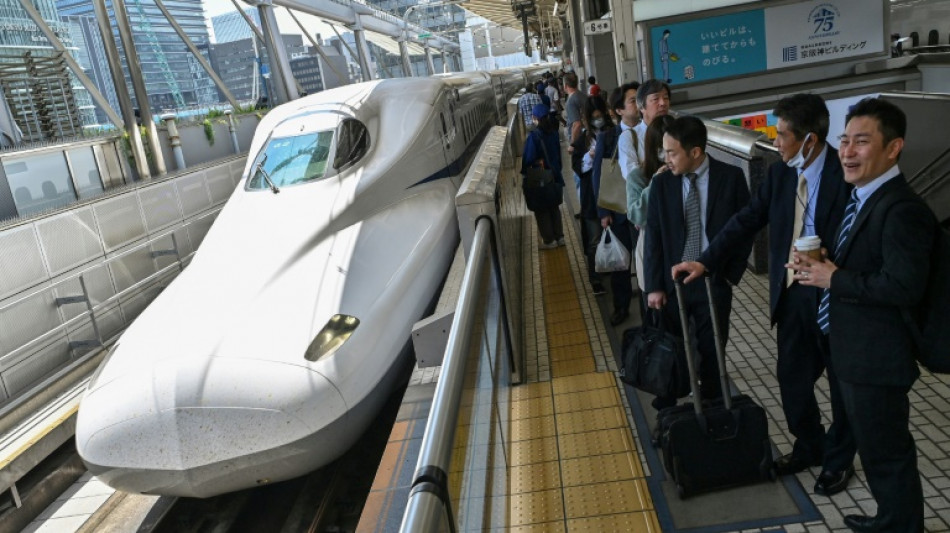
| RBGPF | 100% | 60.1 | $ | |
| CMSD | -0.61% | 24.43 | $ | |
| SCS | -1.33% | 13.54 | $ | |
| RYCEF | -0.29% | 6.78 | $ | |
| RIO | -1.53% | 62.03 | $ | |
| RELX | 0.51% | 46.81 | $ | |
| CMSC | -0.65% | 24.57 | $ | |
| JRI | -0.98% | 13.24 | $ | |
| NGG | -0.68% | 62.83 | $ | |
| BCC | -2.76% | 148.41 | $ | |
| GSK | -0.38% | 34.02 | $ | |
| BTI | 1.01% | 37.71 | $ | |
| VOD | -0.56% | 8.86 | $ | |
| AZN | -0.06% | 66.36 | $ | |
| BCE | -1.46% | 26.63 | $ | |
| BP | -1.24% | 28.96 | $ |

Snake on a train delays Japanese bullet service
Even small delays in Japan's much-vaunted bullet trains are rare, and more unusual still are snakes on board holding up the speedy "shinkansen" services.
On Tuesday evening, a passenger alerted security to a 40-centimetre (nearly 16-inch) serpent lurking on a train between Nagoya and Tokyo, resulting in a 17-minute hold-up.
It was unclear whether the cold-blooded commuter was venomous or how it ended up on the train, and there was no injury or panic among passengers, a spokesman for Central Japan Railway Company told AFP
Shinkansen customers can bring small dogs, cats and other animals, including pigeons on board -- but not snakes.
"It's difficult to imagine wild snakes somehow climbing onto the train at one of the stations. We have rules against bringing snakes into the shinkansen," the spokesman told AFP.
"But we don't check passengers' baggage," he said.
The train was originally scheduled to go on to Osaka, but the company decided to use a different train for the trip, causing a delay of about 17 minutes, he said.
Patrols by uniformed security guards onboard bullet trains were scaled up after a fatal stabbing in 2018 on a shinkansen that shocked normally ultra-safe Japan.
Additional security was added for the Summer Olympics in 2021 and Group of Seven meetings last year.
First launched in 1964, the shinkansen network has never suffered an accident resulting in any passenger fatalities or injuries, according to Japan Railways.
The trains can travel at 285 kilometres (177 miles) per hour, with an average delay of 0.2 minutes.
H.Giordano--IM



